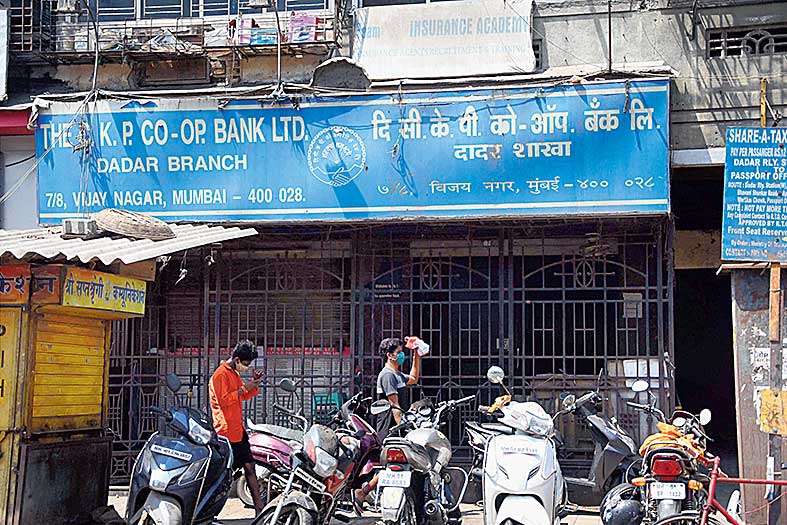The RBI on Saturday cancelled the licence of CKP Co-operative Bank, Mumbai.
In a late evening announcement, the regulator said CKP Co-operative Bank cannot carry on banking business with effect from the close of business on April 30, 2020. It added that the Registrar of Co-operative Societies, Pune, has also been requested to issue an order for winding up the affairs of the co-operative bank and appoint a liquidator.
According to the co-operative bank’s website, it has eight branches in Mumbai. The RBI said on liquidation, every depositor will be entitled to repayment of deposits up to a monetary ceiling of Rs 5 lakh from the Deposit Insurance and Credit Guarantee Corporation (DICGC).
The RBI said it had cancelled the licence as the bank’s financial position was highly adverse and unsustainable. “There is no concrete revival plan or proposal for merger with another bank. Credible commitment towards revival from the management is not visible,’’ it added.
Governor review
RBI governor Shaktikanta Das held a meeting with the heads of banks and reviewed the economic situation and implementation of various measures announced by it to reduce stress in the financial system.
The meeting, which happened in two separate sessions through video conference, was attended by managing directors and CEOs of major public and private sector banks.
The banking regulator further noted that CKP Co-operative Bank is not satisfying the requirement of minimum capital and reserves as prescribed in Section 11 (1) read with Section 56 of the Banking Regulation Act and capital adequacy and earning prospects as stipulated in Section 22(3)(d) of the Act and also stipulated minimum regulatory capital requirement of 9 per cent.
It further disclosed that the bank is not in a position to pay its present and future depositors, thereby not complying with Section 22(3) (a) read with Section 56 of the Act.
``The affairs of the bank were and are being conducted in a manner detrimental to the public interest and interest of the depositors and that the general character of the management of the bank is prejudicial to the interest of depositors as also public interest. Thus, the bank has not been complying with provisions of Section 22 (3)(b) and (c) of the Act’’, it said.
According to the RBI, the bank’s efforts for revival have been far from adequate though it has been given ample time and opportunity and dispensations. Here it stated that no merger proposal has been received with regard to the bank and in all likelihood, public interest would be adversely affected if the bank were allowed to carry on its business any further.










